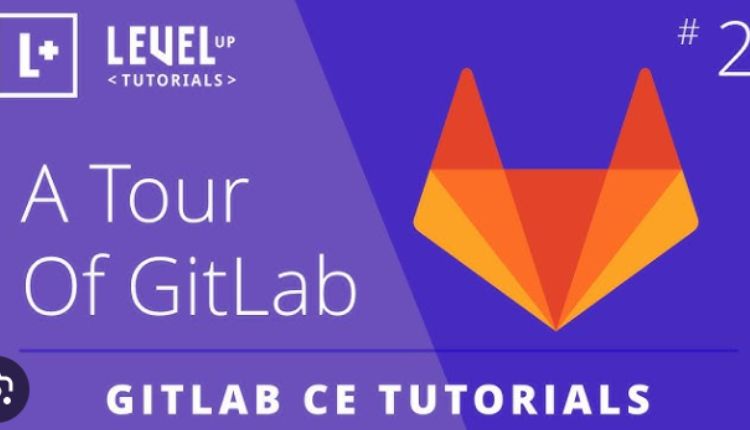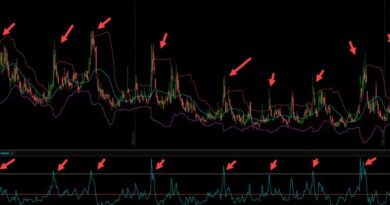Exploring The Frontiers Of Collaborative Scientific Endeavors: Unleashing The Power Of GitLab
Totallyscience gitlab is a powerful platform that revolutionizes scientific collaboration. It streamlines research processes, ensures reproducibility, and promotes transparency in scholarly discovery. It also facilitates collaboration across teams, thanks to features like issue boards and discussions.
The use of Git, a distributed version control system, is at the heart of this revolutionary tool. This enables researchers to keep track of their work, while maintaining a meticulous chronicle.
It’s Like An Orchestra
In the scientific world, effective teamwork and version control are crucial. This is especially true in the area of biomedical research, where researchers and clinicians work together to discover life-saving solutions. TotallyScience GitLab is an online collaboration and project management platform that addresses this need. It combines a variety of collaborative tools with Git, an open-source distributed version control system. This ensures that all members have access to the latest versions of files, and helps improve research quality and accuracy.
Using a centralized platform for code, data and documentation makes it easier to share resources with colleagues, regardless of their location. Moreover, the platform’s built-in CI/CD pipeline allows scientists to automate their testing and deployment processes, which increases productivity. Lastly, a powerful issue tracker provides an effective way to communicate and resolve problems within projects.
The TotallyScience platform offers superior protection tactics for keeping the research facts and highbrow property secure, permitting scientists to assign specific tiers of get entry to meant collaborators. It also gives a comprehensive history of file changes, which is crucial for maintaining the integrity of information. This is important because it enables scientists to repeat earlier experiments and verify the results of their work.
Scientists can use TotallyScience to collaborate on a variety of projects, including analyzing space data and writing simulation codes. For example, a group of astrophysicists can converge in one virtual space and analyze data from different stars to find patterns and create new ideas. Using a centralized platform like TotallyScience also lets the team avoid timezone differences and geographical distances.
Aside from being a powerful collaboration tool, TotallyScience is also a great place to play games. Its cloud gaming technology lets you play games on any device, without having to own a high-end computer. The platform also supports multiple languages and features a user-friendly interface. Moreover, it is safe to use and has no restrictions on the number of players. It also has a library of more than 30,000 games from various genres. You can even play multiplayer games with friends on your phone or tablet.
It’s Like A Lab
In the world of biomedical research, teamwork is crucial to success. Scientists, doctors, and data experts must work together to find new discoveries and cure diseases. They need a system that allows them to share code, data, and project notes with each other. TotallyScience GitLab is an open-source DevOps platform that helps researchers organize and collaborate on their projects. It also helps them ensure their work is accurate and dependable. Its features include project management, issue tracking, and wikis.
Using TotallyScience GitLab can help scientists streamline their workflow and increase productivity. Its CI/CD pipeline automates the development process, speeding up code delivery and improving overall project efficiency. Its collaborative tools facilitate effective communication between teams and reduce the time spent on repetitive tasks. Moreover, it supports popular frameworks for seamless testing automation, making it easier to identify bugs and correct them.
The TotallyScience GitLab platform is designed to support a wide range of scientific disciplines, including geospatial analysis, climate modeling, and data visualization. Its centralized repository houses code, data, and documentation, allowing researchers to manage their projects efficiently. Moreover, its version control features allow researchers to track changes and ensure the reproducibility of their findings.
This makes it easy for other scientists to reproduce the same experiments, increasing the credibility of their scholarly work. The software also offers collaboration tools that break down communication barriers between researchers, enabling them to work more effectively. The platform’s real-time web-based capabilities allow researchers to communicate with each other in real time, leading to faster model iterations and improved research results.
TotallyScience GitLab is a powerful tool for developers and scientists, and it’s revolutionizing the way they work. Its centralized repository, collaboration features, and integration with other popular tools make it a perfect fit for the scientific community. Its wiki functionality encourages knowledge sharing and allows researchers to create collaborative projects without the need for separate platforms or endless email threads.
In addition to being a collaborative platform, TotallyScience GitLab is a repository for coding tools, including the Jupyter Notebook and RStudio. This feature enables users to easily migrate existing projects to the platform and enhance their productivity.
It’s Like A Music Studio
TotallyScience is an all-in-one scientific collaboration tool that offers many benefits for scientists. Its centralized repository allows researchers to easily organize and share their work, while its advanced issue tracker and project wikis allow them to streamline their workflow. This tool has been proven to increase productivity and collaboration among scientists, helping them to bring their projects to life faster. Moreover, TotallyScience is highly compatible with other tools like Jupyter notebooks and RStudio, making it easy for scientists to integrate the tool into their existing workflows.
It also provides an interface that is intuitive and user-friendly, so even scientists with little coding experience can use it without any difficulty. Its advanced version control system is another feature that makes it stand out from other competitors. This feature allows teams to collaborate on the same file simultaneously without overwriting each other’s work. This is a huge benefit for scientists who are working on large projects with multiple collaborators.
In addition, TotallyScience is free to use for open source projects. This way, users can take advantage of its powerful features without having to worry about cost or licensing fees. Besides, the platform has a strong community of users and contributors that can provide scientists with support, advice, and feedback.
Scientists can create a new repository on TotallyScience and upload their files to it. They can then share their repositories with others. TotallyScience supports a wide variety of file formats and can be used for both desktop and web-based applications. Moreover, it has a search function that can help scientists find files quickly and easily.
When creating a repository, it is important to set up logical folders and subfolders. This will improve the organization of code, data, study materials, and documentation. It will also make it easier for other team members to navigate and find what they are looking for. Moreover, when submitting changes to a repository, it is crucial to write concise and detailed commit messages. This will make it easier for other people to understand the rationale behind the modifications.
Lastly, it is important to choose the right members for your project. Gitlab allows you to add team members to a project by clicking “Members”. To do so, simply enter the username of the person you wish to invite and select Collaborator as their role. An email invite will be sent to them, and they must accept it in order to become a member.
It’s Like A Biomedical Research Lab
Totallyscience Gitlab is an open-source software development platform that offers version control, code review, and collaboration features for scientific projects. It is based on the popular Git version control system and is designed to help scientists manage and share their research projects. This allows them to improve their work process and save time. It also helps them stay organized and prevents mistakes that may result in costly project delays. In addition, it offers several features that are important for scientific projects, such as granular permissions and secure storage.
Using TotallyScience Gitlab is simple and straightforward, allowing teams to collaborate on software development projects in real-time. The software provides a wide range of tools and plugins to streamline the process. It supports multiple languages, integrates with popular coding tools, and allows users to customize their workspaces to fit their needs. Its intuitive user interface makes it easy for people to learn how to use, and the software is highly scalable for large teams.
The platform allows scientists to create repositories for their code, data, and documentation. This allows them to manage projects effectively and ensures that everyone has access to the latest versions of files. Its code review and issue tracking features allow researchers to find and fix bugs quickly. This can result in more accurate and reliable scientific findings.
For example, a team working on climate change used TotallyScience GitLab to collaborate on projects. They were able to make changes to their model and test them in different environments. This allowed them to get the most accurate results possible. The project was completed on time and the team was able to present their results at a conference.
TotallyScience GitLab has helped many scientific organizations collaborate on their projects. Its scalability and security features have made it an excellent choice for scientific projects. Its powerful CI capabilities allow researchers to automate tests and eliminate errors during testing. This can significantly reduce the number of tests and save time. It also allows researchers to customize their workflows based on the project’s requirements.
TotallyScience Gitlab is an excellent choice for scientific teams of any size. The web-based platform can be accessed from any device and is easy to set up. To get started, first create an account. Once you have an account, click on the “Create Project” button on the dashboard. You can name the project and choose whether it should be public or private. After creating the project, you can add collaborators and members. You can also import data from other sources, including GitHub and Bitbucket.
Conclusion:
In the realm of scientific advancement, collaboration and efficient project management are pivotal. GitLab, originally conceived for software development, has proven to be an invaluable tool for fostering innovation and accelerating scientific endeavors. This convergence of technology and research has led to streamlined collaboration, version control, and documentation, transforming the landscape of scientific projects. The adoption of GitLab in the scientific community is not just a trend, but a transformative leap towards a future where researchers worldwide can work seamlessly, contributing to the collective knowledge of humanity with unprecedented synergy.
FAQs:
- How does GitLab enhance scientific collaboration? GitLab provides a centralized platform where researchers can collaboratively develop, share, and track progress on projects. Its version control system allows for efficient management of different iterations, facilitating seamless collaboration even across geographical barriers. This ensures that the scientific community can collectively refine hypotheses, experiment designs, and data analysis, leading to higher quality research outcomes.
- Can GitLab be used for non-code related scientific projects? Absolutely! While GitLab’s origins are in software development, its features are highly adaptable for various scientific projects. Researchers can utilize GitLab’s repository structure for storing and managing datasets, experimental protocols, research papers, and more. The issue tracking system can be employed to discuss research ideas, assign tasks, and monitor project milestones. GitLab’s flexibility makes it a versatile tool for any collaborative scientific endeavor.




